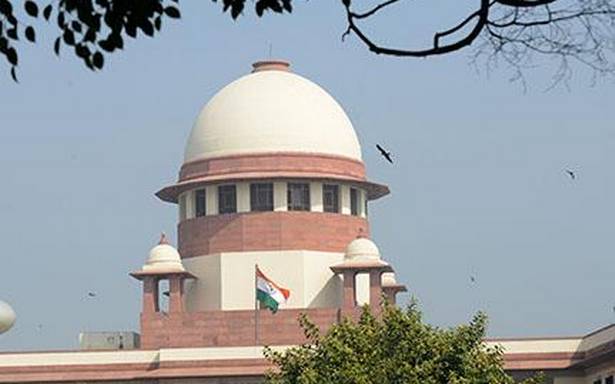In exceptional circumstances, an accused denied anticipatory bail can still be given protection from immediate arrest if his sudden incarceration will plunge his personal affairs and family into crisis, says Bench.
A Supreme Court judgment said an accused denied anticipatory bail can, in exceptional circumstances, still be given protection from immediate arrest if his sudden incarceration by the State will plunge his personal affairs and family into crisis.
A Bench led by Chief Justice of India N.V. Ramana said the black-and-white of the written text of law did not provide for all the grey spots in human life.
Chief Justice Ramana, in the judgment pronounced on Friday, underscored the “reality that no law or rule can possibly account for the complexities of life, and the infinite range of circumstances that may arise in the future”.
Caregiver or sole breadwinner
An accused, besides being an accused, may also be the primary caregiver or sole breadwinner of the family. His arrest may leave his loved ones in a state of starvation and neglect.
In such “exceptional” cases, Chief Justice Ramana observed that courts had the power to allow an accused, while dismissing his anticipatory bail plea, to retain his personal liberty for “some time” — the shortest duration reasonably required — in order to make arrangements for his family before surrendering in the trial court.
Chief Justice Ramana urged judges to pay equal attention to the humane side of criminal law while hearing pleas for anticipatory bail. The grant or rejection of bail in such cases had a direct bearing on the fundamental right to life and liberty of an individual. The concept of anticipatory bail germinated from Article 21 of the Constitution. At times, courts may need to look beyond the strict confines of the written text to secure complete justice. The High Courts and the Supreme Court had the powers to do so.
“Even when not inclined to grant anticipatory bail to an accused, there may be circumstances where the High Court is of the opinion that it is necessary to protect the person apprehending arrest for some time, due to exceptional circumstances, until they surrender before the trial court. For example, the applicant may plead protection for some time as he/she is the primary caregiver or breadwinner of his/her family members, and needs to make arrangements for them,” Chief Justice Ramana wrote.
However, he said courts should not use this discretion to grant “judicial largesse” to accused persons. That was the kind of power no court possessed.
“The discretionary power cannot be exercised in an untrammelled manner,” Chief Justice Ramana cautioned.
The anticipatory bail provision of Section 438 of the Code of Criminal Procedure seeks to balance the rights of accused with the concerns of the investigating agency, the victim of the alleged crime and the society at large.
“Therefore, such an order [to grant protection from arrest despite denying anticipatory bail] must necessarily be narrowly tailored to protect the interests of the applicant [accused] while taking into consideration the concerns of the investigating authority. Such an order must be a reasoned one,” the judgment said.
Source: Read Full Article

